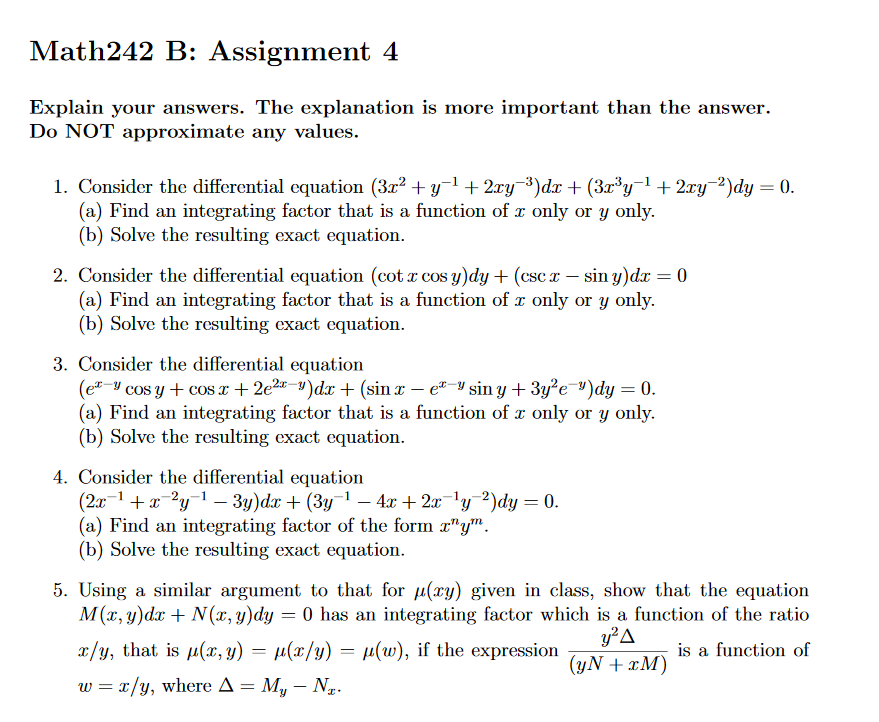#(e^(x-y)cosy+cosx+2e^(2x-y))dx + (sinx-e^(x-y)siny+3y^2e^-y)dy#
We know that #e^y ne 0# so we can simplify the former equation to obtain
#(e^x cosy+e^y cosx+2e^(2x))dx + (e^y sinx-e^x siny+3y^2)dy#
so we have the differential equation
#M(x,y) dx+N(x,y) dy = 0#
Now if #d/(dy)M(x,y) = d/(dx)N(x,y)# then there exists a function #V(x,y)=C# which is the solution in implicit form, to the previous differential equation.
Now
#d/(dy)M(x,y) = -e^x sin y + e^y cos x#
#d/(dx)N(x,y) = e^y cos x-e^x sin y#
Then there exist such a #V(x,y)# function
Now
#int_0^x M(x,y) = V(x,y) + phi_1(y)# and
#int_0^y N(x,y) = V(x,y)+phi_2(x)#
Integrating we have
#V(x,y) = e^(2x)+e^x cosy+e^y sin x+phi_1(y)# and
#V(x,y) = y^3+e^x cos y +e^y sin x+phi_2(x)#
and finally
#phi_1(y) = y^3# and
#phi_2(x) = e^(2x)#
hence
#V(x,y) = e^x cosy+e^y sin x+y^3+e^(2x)= C#


